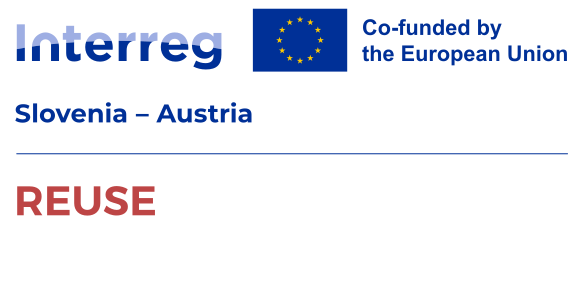Country: Germany
Focus area:Digital
Thematic area:
Digitalization and Connectivity, Automation and Robotics, Data Analytics and Artificial Intelligence, Cyber Security and Digital Trust
TRL phase: TRL 9 - actual system launched on the market (System launched)
Addressed business processes: INBOUND LOGISTICS process , MANUFACTURING OPERATIONS process , CUSTOMER SERVICE process , PROCUREMENT process , TECHNOLOGY DEVELOPMENT process , HUMAN RESOURCE MANAGEMENT process , INFRASTRUCTURE process , OUTBOUND LOGISTICS process , MARKETING & SALES process
Solution overview
Odoo is a comprehensive ERP (Enterprise Resource Planning) solution designed to facilitate digitalization for businesses of all sizes. It offers an integrated suite of applications that address various business needs, including accounting, inventory management, sales, HR, and more, all accessible through a single platform. Odoo aims to streamline operations, improve efficiency, and enhance decision-making by providing real-time data and insights.
One of the primary problems Odoo solves is the fragmentation of business processes. By unifying disparate systems into one cohesive platform, it eliminates data silos, reduces duplication, and enhances collaboration across departments. It also automates routine tasks, freeing up resources for more strategic initiatives.
Odoo targets small to medium-sized enterprises (SMEs) seeking affordable, scalable, and customizable solutions to manage their operations digitally. Its modular approach allows businesses to start with core functionalities and expand as needed, making it a versatile choice for organizations aiming to modernize and grow.
Key features
Odoo distinguishes itself with its modular design, providing over 30 integrated applications in its affordable enterprise version, which can be customized to meet specific business needs.
Its open-source nature enables a free community version, allowing for extensive customization and community-driven enhancements.
Regardless of community or enterprise, Odoo provides a user-friendly interface and seamless updates, ensuring businesses always have the latest features. Its affordability, scalability, and flexibility distinguishing it from competitors with high costs and limited adaptability.
Integration and adaptability in manufacturing environments
Odoo integrates seamlessly into manufacturing processes with its modular design, offering features like Inventory, Manufacturing (MRP), and Quality Management. Odoo’s open-source nature allows for extensive customization to suit specific manufacturing workflows.
It supports IoT integration, enabling real-time monitoring and data collection from connected devices. With a robust API and webhooks, Odoo can communicate with existing systems like MES, other Enterprise Resource Planning systems, and SCADA. It supports barcode scanning for inventory and production tracking and can integrate with PLC system. Its web-based interface enables multi-device access, offering flexibility and mobility on the shop floor. These capabilities make Odoo a versatile solution for digital transformation in manufacturing environments.
Implementation support and training for manufacturers
Odoo offers comprehensive support services for manufacturing companies during implementation, ensuring a smooth transition to their ERP system. These services include a structured implementation approach with tailored solutions for manufacturing needs, such as data migration, system configuration, and process optimization to align with specific workflows.
Odoo also provides training programs covering various aspects of the system, including module-specific training for manufacturing. These programs are available as online courses, webinars, and workshops to help users effectively utilize the platform.
Additionally, the Odoo Partner Program connects companies with certified partners who offer specialized expertise in Odoo implementation. Partners provide personalized consulting, system customization, and technical support to ensure successful deployment. They also assist with ongoing maintenance and updates, adapting the system as business needs evolve. These services enable manufacturing companies to effectively implement and utilize the capabilities of Odoo in order to enhance their operations, thereby eliminating the need for internal Oddo expertise.
Sustainability, compliance and certifications in the EU
Odoo ISAE3402 SOC 1 Type I - November 2021
Odoo SOC 2 Type I - November 2021
Odoo ISAE3402 SOC 1 Type II - March 2022
Odoo SOC 2 Type II - March 2022
Example of successful implementation of solution in manufacturing company.
Multiple successful implementations, including:
- Small-Sized Bike-Lock Manufacturer (20 Employees), complete Odoo-Suite, 1 Year Odoo-Migration/-Upgrade-Phase, 1 Year Support
- Medium-Sized Solar-Module Installer (50 Employees), 1 Year Implementation-Phase
- Medium-Sized Manufacturing Digitalisation Company (50 Employees) 7-Years Upgrade and Support
Implemented functionalities: Accounting, CRM, Field-Service, Inventory, Manufacturing, Project-Management, Website etc.
Case studies or testimonials showcasing the impact of the solution on real-world operations.
We have not conducted any case studies on impact assessment. We are an implementation partner. If you are interested, we can put you in touch with successful project partners from various manufacturing industries.
Link to the solution video or pdf technical documentation.
https://www.odoo.com/de_DE
https://www.youtube.com/watch?v=qxb74CMR748










.png)
.png)


.png)






